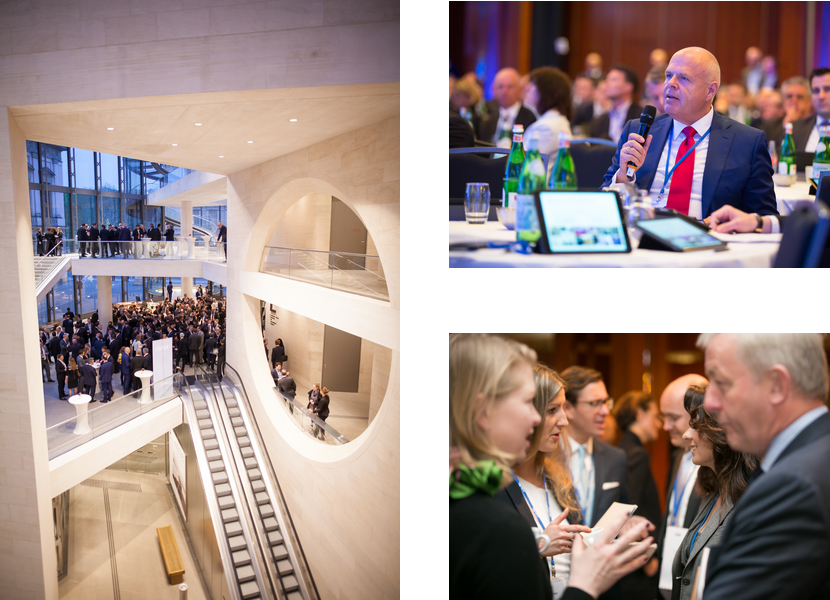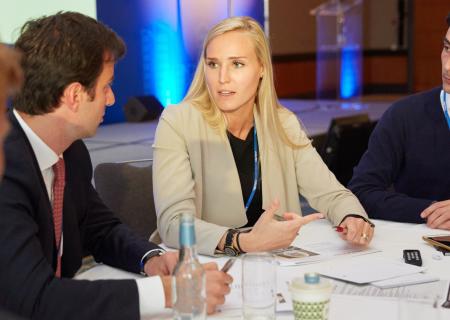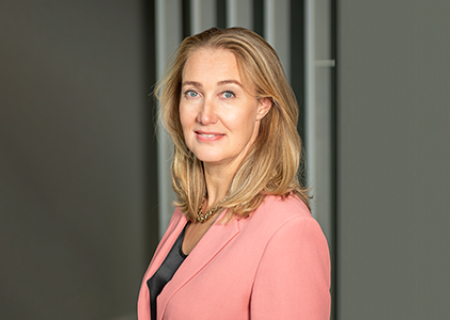Berlin chronicles - INREV Annual Conference 2017
Ploughing through the political waves
Early April marked INREV’s thirteenth Annual Conference. In Berlin for the second time, the event attracted a significant turnout with 435 delegates. It bore all the hallmarks of the quality fixture for which the Annual Conference has developed a strong reputation over the years.
This year, however, there was an added edge: the need to understand how political upheaval in Europe and elsewhere might affect real estate in the medium-term. Consequently, populist politics, Brexit and the uncertain outcome of impending national elections around Europe underpinned much of the debate.
Speakers were quick to get to the heart of these issues. And a confident early consensus emerged that politics was largely irrelevant to investment volumes, though clearly needed to be considered in the general basket of risks. Tom Leahy, Real Capital Analytics summarised this view, saying that political risks were so binary that they almost couldn’t be priced in.
When it came to the specifics of Brexit, there were nuanced arguments on the potential outcome and impacts of the divorce and trade negotiations. Matthew Elliot, Vote Leave and Karel Lanoo, CEPS went head-to-head on the second day.

Matthew Elliott thought that ‘no deal is better than a bad deal,’ but added that Brexit would be of mutual benefit to both parties.
Karel Lanoo, on the other hand, characterised the UK as ‘a reluctant insider, soon to be an unhappy outsider’ – a nonmember, trying to get opt-ins. Brexit, he said, would be a lose-lose situation, adding that it would be better to have a bad deal than no deal at all.
Anders Borg, Economist and former Swedish Finance Minister, speaking on the second day, offered yet another view, saying that he was ‘defensively optimistic.’ But in his opinion, the EU stood to lose most because without the UK there’d be a loss of focus on free trade.
A confident early consensus emerged that politics was largely irrelevant to investment volumes, though clearly needed to be considered in the general basket of risks.

Delegates seemed largely resigned to hoping that the right solution would somehow be found.
Several speakers also interpreted the current global macroeconomic situation and its potential impacts on the real estate investment landscape
In his keynote address, Jürgen Stark spoke about European divergence. He referenced the drivers of asymmetric development: monetary policy to keep the US dollar / euro exchange rate competitive – from which, incidentally, he said only Germany really benefited; the correlation between the quality of institutions and GDP growth; and the need for reforms in labour law, where countries such as France and Italy still lag behind their counterparts.
Very candidly, the former central banker revealed his less than enthusiastic support for ECB policy and models. However, he acknowledged that the ECB knew the process of normalisation after quantitative easing would be complex, because it had not been through this kind of situation before. His eloquent summary spoke volumes: ‘we need a rule book for normalisation, but there is no rule book.’

From economics to the detail of real estate markets, analysis from the podium was as lively as commentary from the floor was engaged.
José Pellicer, Rockspring delivered a typical tour de force in his defence of the view that there is no asset pricing bubble. Relative to other asset classes, he said, real estate was still fairly priced because of its underlying fundamentals. This view was well received, drawing a general chorus of support from delegates. José, however, included the cautionary note that private equity managers had turned into net sellers of real estate after being net buyers for many years.
Technology can powerfully and dramatically increase the efficiency of distribution and transportation networks – adding value beyond pure real estate.
- Hamid Moghadam
The case for debt was made forcefully too – especially from panellists offering their views on the global investment outlook. For Judy McMahan, UPS Investments, debt was positive because it provides a monthly income to meet liabilities or dividend payments. Her co-contributor, François Trausch, Allianz Real Estate added his support, claiming he was keen on debt: ‘Anytime, any size, anywhere. But not at any price, of course.’
And on the broader subject of cross-border investment, delegates heard much about hot markets such as China and India. The scale and pace of the expansion of these markets was a common thread.
It was noted, for example, that the Chinese property market had surged from 5 to 35 times that of Hong Kong in only 15 years.
Once again there was a revealing glimpse into the life and work of an industry veteran with an exciting story to tell. Hamid Moghadam engaged the crowd as he spoke about the creation and success of Prologis. His insights shed light on the challenges and opportunities presented by technology, and confirmed that it could ‘powerfully and dramatically’ increase the efficiency of distribution and transportation networks – adding value beyond pure real estate.
He also shared valuable lessons from the great financial crisis, highlighting the importance of a strong balance sheet. But perhaps the greatest revelation was that, for him, ‘cash flow is sexy’.
In two days of commentary and debate, the conference covered acres of ground. There was every sign that it was a welcome and fulfilling journey for the delegates.
For further information on the INREV Annual Conference Berlin 2017, download available presentations.
Save the date for INREV Annual Conference Dublin 2018 - 11 & 12 April.









